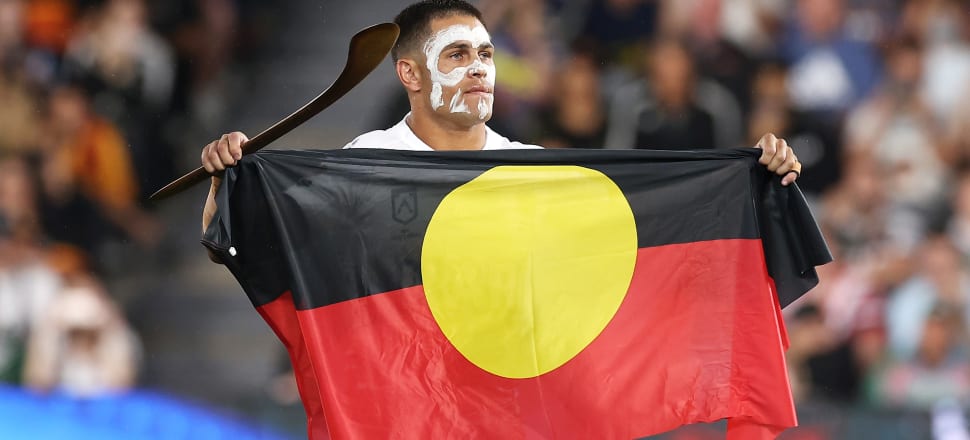
For overseas voters, the deciding issues won't be crime or the cost of living crisis. Distance gives us a perspective about the modern values NZ has embraced – yet risks casting aside.
Opinion: It’s not just New Zealanders who will head to the polls on October 14. Australians will too, voting in the referendum on the Aboriginal and Torres Strait Islander Voice to Parliament.
Australians will vote on amending their Constitution to recognise Aboriginal and Torres Strait Islander people as the First Peoples of Australia, and to establish a Voice – a body that will have the ability to make representations to Parliament and to the Government on matters relating to them. There’s no legislative decision making power, no veto power, just a voice.
It’s a generous offering from the First Nations People of Australia, with the recommendation coming from the Uluru Statement of the Heart in 2017. But despite the simplicity, and incremental nature of the change, polling indicates that it’s set to fail.
READ MORE: * A foreign affairs marathon brings relief to PM's domestic woes * The Detail: Matariki's link in a chain of star stories
As a Kiwi who has recently moved to Sydney, the conversations surrounding the Voice have been somewhat of a culture shock. It’s like having stepped back in time. And it’s not just me – other New Zealanders living in Australia with whom I’ve discussed the Voice are just as bewildered as to why it’s controversial or hasn’t happened yet.
Australians with whom I’ve spoken have all acknowledged how much further along Aotearoa is in our reckoning with our colonial past, and First Nations people specifically have pointed to our Treaty and the subsequent claims process, alongside our greater integration of both Māori culture and language into our everyday lives as examples of political aspirations they have for the lands on which they’ve lived for over 60,000 years.
While of course Aotearoa is still on its journey of honouring Te Tiriti o Waitangi and realising the principles and aspirations of our foundational document, it provides New Zealanders with an opportune time to be self-reflective.
There was a moment last year, at Eden Park watching the Black Ferns triumph in the Rugby World Cup Final, that to me embodied the modern values of Aotearoa.
We can (and maybe should) be looking smugly at Australia, embarrassed for them that it was only in 1967 when they voted in a similar referendum to amend their Constitution to count Aboriginal and Torres Strait Islander people in their population, and revelling that on this particular topic we resoundingly beat the Aussies.
Or, we should use it as an opportunity to shake any sense of complacency and ensure that as Pākehā on October 14th we use our voice and vote to further advance progress for Māori and the partnership envisaged under Te Tiriti o Waitangi. And while the usual suspects are using divisive rhetoric in an attempt to enflame American inspired culture wars for political gain, it doesn’t seem to have gained traction according to the latest 1News-Verian poll.
In Aotearoa, we should feel lucky that our culture and way of life is being influenced by our indigenous people and seek to embrace that further. We should feel lucky that we’re not currently having to have a divisive referendum on a basic question as to whether or not our indigenous people should be recognised in our founding document.
While Albanese was adamant that in bilateral conversations with Hipkins in visits earlier this year, he wasn’t engaging in discussions around the Voice (it was a matter for Australians, he said) the rest of Australia shouldn’t follow his lead. Australians should be looking across the ditch to see that, much to Peter Dutton’s bewilderment, the sky hasn’t fallen over our beautiful country – and that the progress made with Māori to reconcile our colonial past has strengthened who we are and enriched our national identity.
For overseas Kiwi voters, particularly in Australia, we’re less likely to vote on issues such as the cost of living crisis or crime. Not because we’re not seeing the same issues here (manufactured recessions by our respective reserve banks that have caused a cost of living crisis and subsequently increased crime as people struggle to put food on the table, but maybe that’s for another opinion piece) but because the national debate in Australia is forcing us to reckon with the concept of progress itself.
So when we cast our attention across the ditch and go to vote on October 14 alongside our Australian counterparts, we’ll have a different question to answer; but not a fundamentally different concept to wrangle with. Do we want our home country to continue to move forward? Or do we want to elect a government that embraces divisive American culture wars?
There was a moment last year, at Eden Park watching the Black Ferns triumph in the Rugby World Cup Final, that to me embodied the modern values of Aotearoa.
It was the kuia two rows in front of us swinging her poi as she was cheering on the girls, and then Ruby Tui leading the stadium in a thunderous rendition of Tūtira Mai Ngā Iwi. A diverse crowd from our sporting nation, celebrating te ao Māori and cheering on as we punched above our weight once again – that is what Aotearoa means to me, and that’s the future of Aotearoa I’ll be voting for.







